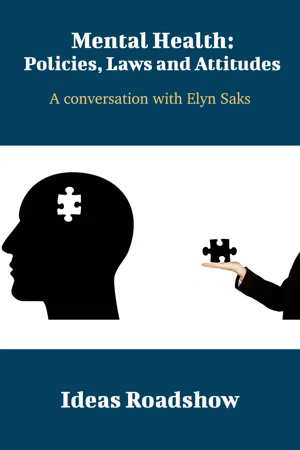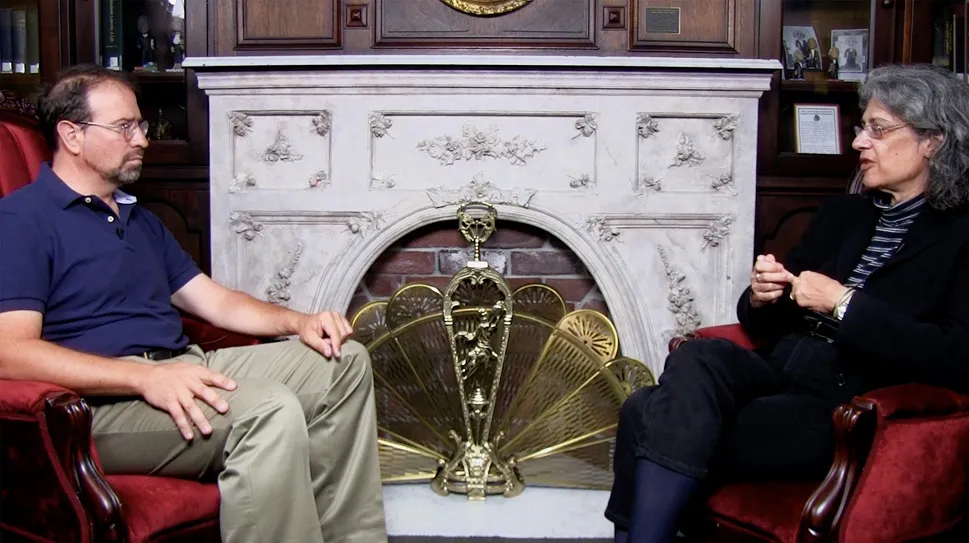![]()
The Conversation
![]()
I. A Candid Admission
Writing The Center Cannot Hold
HB: I was motivated to talk to you not only to help develop a better appreciation of current societal attitudes and policies and procedures for the mentally ill, but to better understand what we should actually do, as a society, to move forwards: what policies and laws should be invoked, some sort of prescription for where we should be, at least moving towards.
You seemed like an ideal person to talk to because of your personal experience as detailed in your extremely candid, extremely insightful memoir (The Center Cannot Hold: My Journey Through Madness), but also, even more significantly, because you’re a law professor who deeply understands the legal and surrounding societal structure associated with these issues. You clearly have a very strong understanding of things, both from a first-person perspective and from an objective, second-person perspective.
I thought we might start with a more personal perspective, of shedding light on what it is that we’re talking about, dispelling illusions about mental illness, giving people a sense of what’s happening. I can begin by expressing my fascination with many aspects of your memoir. For someone like myself who hasn’t spent a lot of time thinking about mental illness and might have imbibed some false stereotypes without recognizing it, it was very refreshing to get a different perspective.
I was struck by a couple of things. First by the fact that you had managed to accomplish so much, including top academic degrees at Vanderbilt, Oxford and Yale, and second of all, that you did all of that through these incredibly traumatic and difficult circumstances. I wouldn’t have thought such a thing was possible. Is that, in your experience, hugely unusual, or are there a significant number of other people who have done similar sorts of things?
ES: It’s interesting. There’s a study that I’m doing with UCLA and USC on “high-achieving” people with schizophrenia. What we do is, we get our subjects, we ensure they’ve received the proper diagnosis, and then we do a couple of interviews with them about what their illness looks like and the kinds of things they do to keep themselves sane.
When I used to go on the road with my story, people would say, “Oh, you’re unique. There aren’t other people like you.” But we found 20 people fairly quickly: we got two MDs, a JD, a PhD candidate, a school teacher, a CEO of a not-for-profit, full-time students, full-time caregivers, and so forth. There are people out there like me.
I asked the Principal Investigator, Steve Marder, who’s a well-known schizophrenia expert, what percentage of people with schizophrenia are high-functioning, and he said, “Well, I’m not sure Elyn, but the real question is, How many could be if we really invested resources into their care?” And I thought that was exactly the right answer.
HB: Of the people who we know have managed to achieve such high standards, despite the fact that we haven’t been investing sufficient resources, are there some commonalities that you can point to, other than the fact that they’ve achieved?
ES: People talk about different ways they manage their illness. It could be through avoiding stress, avoiding travel, avoiding drugs and alcohol, keeping their environment simple so they don’t get overstimulated. For some people spirituality is very important. One thing that interested me was how many people said, “When I was given the diagnosis, my parents said, ‘You can’t let that stop you doing what you want to do. Go forward, do well, don’t give up, and don’t reduce your expectations.’ ” I’m sure there are parents who do that and the kids can’t succeed anyway, but in many of our subjects, that was in the background, and I thought that was quite interesting.
HB: And speaking of a sense of reinforcement, one of the things that’s striking about your book is just how many people you met along the way who have supported you. It’s astounding. To be completely personal, it was a little bit alarming, because it certainly dawned on me that I don’t have anywhere near the number of people that you seem to have who would support me in similar circumstances.
ES: Actually, one of the negative symptoms of schizophrenia is to not be well-related, to not have friends in your life. Sometimes students who have the illness ask me, “How do you make friends?” and I don’t really know what to say except, “Be a good friend.” I’m incredibly lucky that I’ve had that in my life because it gives my life a kind of richness and meaning, and it’s also another set of eyes to observe if I’m starting to slip, because sometimes my friends can see it before I can see it.
Not only friendship, but romance as well. I basically went 18 years, with a couple of dates in the middle, too tormented by my demons to have a relationship. I had the usual psychological mishigas, but eventually I became interested in dating again and found my husband and fell in love and we got married, in our 40s. We joke that we just skipped our first marriage. That’s been a really big and important part of my life as well, and that’s something that I never expected to have.
HB: Notwithstanding the support, there was a bit of a twist in your story with respect to medication: you were put into a drug treatment program even though you had only smoked a few joints. You write revealingly about grappling with the idea of medication, looking for a very long time as something to be overcome, before finally coming to grips with appreciating its necessity. I would think that this sort of battle is fairly widespread amongst many people who suffer from such conditions. Is it?
ES: It seems to me that medication resistance and refusal has three sources: one, people don’t like the side-effects. To me, if the choice is between drooling at night and being psychotic, I’m going to take drooling at night. A lot of people gain weight. I gained about 20 pounds. If I had gained 100 pounds, maybe I would have felt differently.
The second thing is that people feel good on the medication and they think they’re better, that they don’t need it anymore, so they stop and then they find out that they actually do need it.
The third thing, which is what most affected me and I think affects many people, is what we call the narcissistic injury of having an illness and needing treatment. So the way that I could prove that it was all some terrible mistake, that I wasn’t really mentally ill, was by getting off the medication and doing well. So I tried and tried and tried. When I look back, I’m sorry that I wasn’t smarter sooner. But I’m also glad that I wasn’t literally forced.
The other thing I’d like to say about medication and psych patients is that we’re not the only people who don’t like medication. There are undergraduate psychology class studies where the investigators stand outside elevators in a medical office building and count how many people throw away their prescriptions before they get in the elevator.
HB: It’s probably a lot.
ES: Exactly.
HB: Getting back to this question of what you would have done differently had you known, what else could you say? If you knew then what you know now, how would you have acted differently?
ES: You know, I don’t think I would have acted in any other way. I think I very much benefited from psychoanalytic therapy four to five times a week. I’ve been trained. I know the theory is that it’s supposed to end, but I’m a lifer. I don’t want to take the risk of decompensating if I don’t have it. The therapy was extremely important, as well as friends, family, and an accommodating and stimulating work place. All of those things came together to help me avoid my grave prognosis. I mean, I was expected to be unable to live independently, let alone to work, and obviously that hasn’t turned out to be my life.
HB:...

